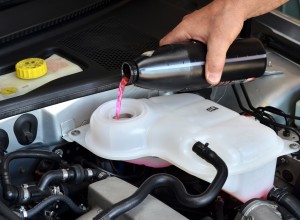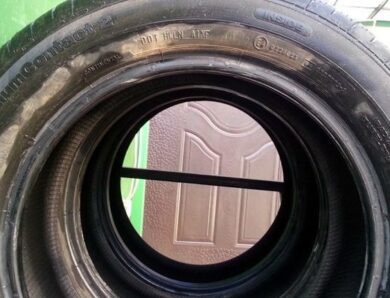How to distinguish the original engine oil from counterfeits
Proper selection of engine oil for the engine, taking into account all the recommendations of the car manufacturer is one of the main components for the normal operation of any engine. Also extend the life of the motor allows timely maintenance and quick troubleshooting.
Replacement of oil and other materials (not only by regulations, but also taking into account individual conditions and features of vehicle operation) means, that the power unit will work properly for a long time before the overhaul.
Quite obviously, that taking into account the above information, each responsible car owner pays special attention to the selection of oil. Understanding that, that errors increase the risk of engine wear, greatly complicates the process of selecting oils.
Naturally, when looking for the best lubricant, maximum attention is paid to viscosity, certification, API classification, THAT, manufacturer's choice, etc.. d. Let's note at once, non-compliance with any parameters or single use of oil, which may not have separate tolerances, is not always critical for the engine.
Much more important is another fact, which is often completely overlooked. We are talking about products. If you fill the engine with counterfeit, then the damage to the engine can be enormous, as the counterfeit is capable to send even the new or completely serviceable motor quickly for repair or in scrap.
Next we intend to talk about it, how not to buy fake engine oil, as well as what to look for when buying it. Tips and tricks will also be provided, where and how best to buy lubricants.
Original engine oil: myths and reality
Let's start with that, that a counterfeit product can turn out to be a cheap motor oil (example, mineral water in a canister from under expensive synthetics), and a liquid of unknown origin, which only looks like grease. If in the first case there is still a chance to save the engine with timely detection of the problem, in the second operation of the internal combustion engine for such fluids leads to the urgent need for major repairs.
so, with the risks everything is clear. Now let's look at some common mistakes. First of all, many drivers believe, that counterfeiting expensive oil of world famous brands does not make sense in terms of economic benefits. The main argument is that, that to make counterfeit containers in artisanal conditions is very difficult and expensive. As practice shows, this statement is true, but only partially.
The point is, that the car market is actively practicing the purchase of empty original packaging. Then the canister is filled with either the cheapest oil or liquid, not at all lubricant. You can also use the option of mixing a small amount of quality oil with cheaper options.
Then a small amount of counterfeit is "thrown" into the total mass of branded goods. We are not talking about counterfeiting on an industrial scale, but this is enough for a few unscrupulous sellers to make extra profit.
It turns out, it is possible to draw a conclusion about that, that counterfeit oils are middle class, and top products. We will add, that most often counterfeit the most popular and well-known products among domestic consumers (example, Molly's Liqui, Shell oil, original Ford engine oil, GM 5w30 dexos2 oil for Opel and Chevrolet models, etc.)
Now let's look at another common myth. Some drivers are adamant, that engine oil, which is sold in tin containers, cannot be a fake. The basis for this statement is that, that the production of such iron containers is expensive.
In practice, Unfortunately, the situation is somewhat different. Quite often it is on iron banks, which are mostly packed not cheap enough Japanese motor oil (example, JANUARY, popular Nissan oil 5W40, etc.. d.), there is no information about the expiration date, date of manufacture of the product, etc.. P.
Quite obviously, that the original lubricant simply cannot leave the factory without the batch number, date of manufacture of the product, as well as its shelf life. It turns out, counterfeit was also sold in iron containers.
How not to buy fake engine oil
Let's start with general recommendations. First of all, pay attention to the canister. Containers should not be made transparent. This means, that the oil level in the canister should be viewed only on a special measuring line, which is made on the container.
- You need to inspect the seams of the canister. These compounds must be careful, equal, without defects. The plastic itself, from which the canister is made, should be smooth, no shells, noticeable differences in color between the parts of the canister, without bubbles on plastic, etc.. P.
- Next you need to study the label. This element must be evenly and well glued (without distortions, bloating, exfoliation). Fonts on the label must be smooth, clear, inscriptions must be error-free.
- The next step is to inspect the cover. The cover must be tightly closed and securely pressed against the retaining ring. The ring itself should fit snugly against the neck of the canister. Let's add, that manufacturers of protective oils also perform special engravings on the lids, a special hologram is pasted on the canister or lid, etc.. P.
- Separately, you should read the information about the date of manufacture of the product and its expiration date. The date must be clearly and completely printed, up to a second. No abrasions and blurs are allowed.
As you can see, before buying oil you need to carefully study its packaging. Now let's move on. If you take into account, that fraudsters are buying up original empty containers, then it becomes clear, that the cover can most often give out a counterfeit. The point is, that in many cases the neck of the canister turns out to be clogged rather suspiciously.
- Example, a comparative analysis of a counterfeit Shell oil canister with the original reveals noticeable differences. The original has a characteristic filling mustache on the lid, by means of which it is possible to achieve reliable fixing of a stopper on a neck of a canister. Counterfeit oil does not have such tendrils, the lid only holds back, that it is simply glued.
You also need to inspect the seam of the canister, estimate the gap between the neck and the lid. There should be no gaps in the original, the seams of the canister are neat. Another feature about Shell and oils of this brand for Russia and a number of other CIS countries is that, that the place of manufacture on the package must be the Russian Federation, and not the EU.[/do]
Note, common fakes, which are more difficult to determine by the lid and canister. The point is, that attackers first drain the original oil from the canister and then sell it according to certain schemes.
At the same time during draining the cover on the canister does not unscrew up completely, that is, the factory seal is retained. After that, the counterfeit is filled into the canister. Such counterfeits are common among popular Mobil products (example, Mobile 3000 5w40 and so on. d.).
- Fraudsters also actively counterfeit common Castrol oils. The reason is quite clear, since this product is originally expensive, tested and in demand, enjoys a good reputation among consumers.
Empty containers from Castrol oil unscrupulous dealers buy en masse in car markets and service stations, canister lids are made independently or suitable options are purchased separately. Special equipment can even be purchased to seal these covers. In this situation, even experienced motorists with experience often fall victim to fraud.
We also recommend reading the article about it, which engine oil is better to fill in the engine in the summer. In this article you will learn about the features of the correct selection of "summer" engine oil.
In order not to buy a fake, again comparative analysis helps. As you know, Castrol oils have red lids, on which special ribs are made. These ribs are needed for that, so that your fingers do not slip, that is, the cover was easy to unscrew by hand.
So from, non-original covers differ in that, that the ribs on them are very tonic. This feature must be taken into account when buying oils of this brand. Castrol oils should also be on the oils of this brand, applied to the cover and snap ring. Lack of engraving will indicate that, that the product is not original.
Let's add, that if the canister and lid do not arouse suspicion in appearance, then experienced car owners practice another way of checking. To be precise, counterfeit can be distinguished by smell.
To do this, ask the seller to unscrew the lid slightly, without damaging the seals. After that, the canister tilts the neck down. The original engine oil has a light, pleasant and barely noticeable "soft" smell. Counterfeit in some cases smells bad, sharply and strongly.
The disadvantage of this method is that, that not all sellers agree to such manipulations. Also, many manufacturers additionally close the canister under the lid, which excludes the possibility of evaluating the liquid with the smell without completely removing the lid and breaking the seals.
As a result
so, it is necessary to approach the issue of buying engine oil with full responsibility. Remember, any brand and brand of oil can be a forgery, and as in a liter plastic canister, and in an iron jar with a large volume.
You should not stop your choice on the product, which does not have the proper appearance (worn canister, does not look like new factory packaging, there are suspicious nuances in the area of the lid, etc.. d.). Sealing tendrils must be clearly visible on the cover and ring, adhesions under the throat should be factory. Form, the color and the design of the cover itself should not cause any complaints.
In the current situation, the optimal approach can be considered as follows, when the consumer takes an empty canister from under the tested original oil before buying. This method is well suited in those cases, When, example, the engine is constantly filled with oil Motul, the driver uses Mobil or Total oil, at the same time the transition to another type and brand of oil is currently not planned.
Then a comparative analysis of the available canister and containers with fresh oil is performed on site. At the same time consider separately, that the forgery in some cases is still extremely difficult to distinguish from the original.
We also recommend reading the article about it, what is the difference between 5W-30 engine oil and 5W-40. You will learn from this article, which of these products is best for the motor in different situations.
The point is, that some scammers use expensive equipment, which allows them to achieve high quality printing, close the lids as close as possible to the original, etc.. d. Reducing the risk allows you to buy oil only at authorized points of sale from official dealers (example, original VAG or Honda oil can always be bought at service stations from officials), as well as reputable private sellers.
This means, that you should not immediately go to the car dealership and buy oil in the first-best kiosk, where you were offered the best price. Before buying, it is desirable to separately study the site of the oil manufacturer, contact regional representatives and clarify, which points of sale are official (from small shops to dealerships or large retail chains).




